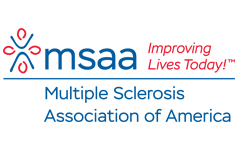Among other benefits, the Affordable Care Act (ACA) helps individuals on Medicare to save money with preventative care and brand-name drugs. Starting in January 2014, Medicare began covering many preventative services with no out-of-pocket expense. This coverage includes an annual wellness visit and screening tests as recommended, such as those for diabetes, breast cancer, osteoporosis, and heart disease. If you would like more information about all of the preventative services that are covered with no cost sharing, please visit www.Medicare.gov.
 Another major area of change to Medicare is in relation to “closing” the Part D “donut hole.” Most Medicare prescription drug plans have a coverage gap, also called the “donut hole.” This refers to a temporary limit on prescription drug coverage, where the policy holder needs to pay a higher percentage of his or her medications after reaching this limit. Coverage then resumes after the individual reaches a higher level of out-of-pocket expenses, at which time the individual would automatically receive “catastrophic coverage.” For the remainder of the year, only a small co-insurance amount or co-payment for covered drugs would be required.
Another major area of change to Medicare is in relation to “closing” the Part D “donut hole.” Most Medicare prescription drug plans have a coverage gap, also called the “donut hole.” This refers to a temporary limit on prescription drug coverage, where the policy holder needs to pay a higher percentage of his or her medications after reaching this limit. Coverage then resumes after the individual reaches a higher level of out-of-pocket expenses, at which time the individual would automatically receive “catastrophic coverage.” For the remainder of the year, only a small co-insurance amount or co-payment for covered drugs would be required.
Medicare recipients will see some changes in their out-of-pocket expenses as the Medicare Part D donut hole is incrementally lowered to finally “close” in the year 2020. At that time, Medicare recipients will pay 25 percent of the drug cost. This represents a significant cost savings, as before 2010, individuals in the donut hole were required to pay 100 percent of the cost of their medications until reaching the end of the donut hole.
Lastly, many states have opted to expand their Medicaid Programs, which means more individuals on Medicare will also qualify for Medicaid. If you qualify for Medicare coverage and also meet the income and eligibility criteria for Medicaid, you are considered “Dual Eligible.” If you are “Dual Eligible,” generally Medicare would be billed first or considered your primary insurance, and then Medicaid would be billed for the balance acting as a secondary insurance. Please contact your local Department of Human Resources to determine if you qualify.
If you do not qualify as “Dual Eligible,” you may be determined “Partial Dual Eligible.” This would qualify you for some financial assistance programs in your state based on income.
If you are experiencing challenges paying you Medicare premiums, deductibles, or co-insurances based on income, you may want to check with your local county Department of Social Services/Department of Human Resources. They can let you know if you qualify for your state Medicaid program or other financial assistance options.













